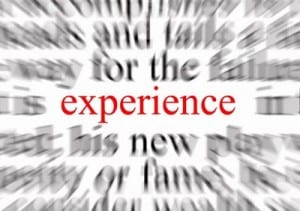We Don’t Need Apologetics, We Just Need to ‘Experience’ Jesus – Attempts at Honesty
This is a guest post by Greg West, the curator of a helpful apologetics web site called The Poached Egg.
“We don’t need apologetics, we just need to ‘experience’ Jesus!” Unfortunately, this is something I hear from fellow believers quite often and it never fails to set off the warning sirens in my head; not because I think that ‘experiencing’ Jesus is bad—in fact, I think it’s a good thing, but if you’re basing your faith on experience alone to the exclusion of reason and knowledge, then you’re building your house not on solid rock, but on sand—and when the rains come down, the streams rise, and the winds blow and beat against your house it will fall with a mighty crash (Matthew 7:24-27).
We need to stop teaching people to ‘experience’ Jesus and teach them to know Jesus. Let me explain what I mean: In his post titled, High School Students and Apologetics, teacher Dan Gehrke said,
“I’ve observed that kids have changed over the last seven years since I last taught apologetics. All of the evidential facts that I used to put in front of them to give evidence to the reliability of Scripture and the resurrection was exciting! The notion that they didn’t have to throw their brains away to be Christians was life-altering for many of them.”
While this was still true for some this year, I discovered that “facts” and evidence seem to be met with more and more apathy.
So one day I asked, “Would you rather have me make an air-tight case for Jesus, or would you rather ‘experience’ Him – even if I can’t define what that means?” They almost all chose the second. Interesting.”
Why is this so alarming? Because apologetics involves discerning between what is true and what is false. Emergent church leader John Crowder said in this post, “I honestly believe that the age of apologetics is over, and the age of activation has come. Experience is more important than explanation.” If you read the quote in the full context, I think what you’ll find that Mr. Crowder doesn’t want to have to defend his beliefs, because outside of his personal experience, on which his abhorrent theology is based, I seriously doubt that he can—and if you, members of your congregation, or especially if your kids can’t either, then if they happen to remain in church at all, their theology might end up being as bad as Mr. Crowder’s—or worse (if that’s even possible).
Apologetics has several useful and necessary applications including evangelism, defending against attacks on Christianity in the public square, discerning false doctrine, and edifying believers. Examples of each of these can be found in scripture. If we deny the need for apologetics then we are denying what scripture actually teaches and are simply inventing our own gospel—much like John Crowder’s pathetic parody of the gospel, which is becoming all too common these days–just as Paul said it would in his second letter to Timothy:
For the time will come when people will not put up with sound doctrine. Instead, to suit their own desires, they will gather around them a great number of teachers to say what their itching ears want to hear. They will turn their ears away from the truth and turn aside to myths. 2 Timothy 4:3-4
I’m not just simply passing on what I’ve learned from observation but also what I’ve lived out in my own life. I was raised in a good church and as a young teenager I was an enthusiastic believer. I had experienced Jesus. I experienced him during worship, I experienced him when testifying in front of the congregation. When I preached my first sermon at age 16 it was because I had experienced Jesus. When I was filling out my application for Bible College it was because I had experienced Jesus—but by the time I was in my early twenties I was no longer experiencing Jesus, I was experiencing doubt—and before I’d turned twenty-five I identified myself as an agnostic.
My agnosticism continued for nearly ten years before I eventually discovered that Christianity is not a ‘blind faith’ that requires belief without evidence. I came back to the fold but most do not. By my best estimation, out of the many adults that I knew as kids growing up in church, only about 40% of the ones that I know of still identify themselves as Christians. That’s about 10% better than today’s average.
Do we want ourselves and others to be those who believe that, “The fear of the Lord is the beginning of wisdom, and knowledge of the Holy One is understanding” (Proverbs 9:10), or will we let ourselves and others become those, who like John Crowder, claim to be wise but are instead fools (Romans 1:22)?
Do I want to ‘experience’ Jesus? Absolutely I do. But even more so, I want to know him—and I want others to know him too.






